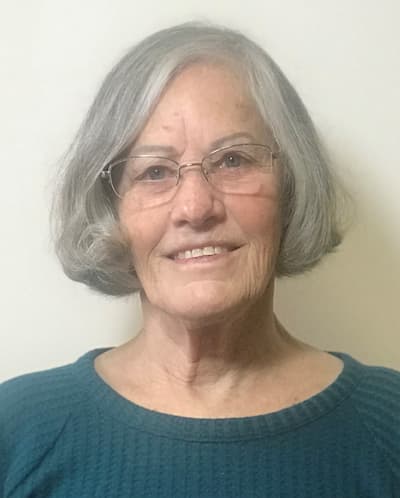
Navigating Shadow Syndromes: The Role of Clinical Judgement in ADHD Diagnoses
By Cynthia Hammer, MSW
For ADHD the Clinical Judgment of the Diagnosing Physician or Psychologist is a Prime Consideration
The DSM-5 outlines specific criteria to help professionals diagnose [ADHD]. Having a standard set of symptoms to reference when assessing clients helps them to more accurately diagnose mental health concerns and, in turn, create a more effective plan of care.
The words above, from the Very Well Mind website with my substitution of “ADHD” for “general anxiety disorder,” accurately conveys where things stand in diagnosing mental health and neurobiological conditions. Lacking a test, an x-ray, or an MRI that informs the clinician to say yes or no, patients rely on the physician or psychologist’s “clinical judgment,” his or hers experience, knowledge and value system.
While one physician may determine you have ADHD, another may not. When an adult expresses frustration to be denied an ADHD diagnosis or to be diagnosed instead with depression or anxiety, we commiserate.
Unfortunately, our only advice is, “Find another physician. Get a second opinion. If you think you have ADHD, don’t give up.”
In 1998, Dr, John Ratey, then Assistant Professor of Psychiatry at Harvard Medical School, and Catherine Johnson, Ph.D., a writer specializing in neuropsychiatry and the brain, co-authored the book, Shadow Syndromes: The Mild Forms of Major Mental Disorders That Sabotage Us. Almost 25 years ago, based on his clinical practice and clinical research, Dr. Ratey believed that millions of people who attribute their daily life problems to bad parents, low self-esteem, or lack of will power may, in fact, be struggling with shadow syndromes. Chronic sadness, obsessiveness, outbursts of anger, inability to finish tasks, disabling discomfort in social situations, he believed, are mild forms of serious mental disorders.
He called these milder forms Shadow Syndromes and understood that they can affect the very course of people’s lives.
In a presentation in 2020 at an international conference on “ADHD and Comorbid Health Conditions across the Lifespan,”, Stephen Faraone, Ph.D., (President of the World Federation of ADHD and Distinguished Professor, Department of Psychiatry and of Neuroscience and Physiology, The State University of New York Upstate Medical University) discussed subthreshold cases of ADHD (i.e. where patients had fewer symptoms of ADHD, perhaps 3 -4 instead of the 5 required for adults by the DSM-5 for an ADHD diagnosis.) Although the research cited involved fewer than 500 children, the results were consistent.
Subthreshold ADHD looks very similar to full ADHD in many areas of dysfunction, for example, inattention, social problems, depression and anxiety.
In other words, subthreshold ADHD is a shadow syndrome of ADHD and warrants diagnosis and treatment. Dr. Faraone, however, cautioned that a clinician needs to carefully evaluate if the adult with subthreshold ADHD demonstrates impairments in multiple settings before proceeding with a diagnosis.
Dr. Faraone gave several reasons why adults with ADHD might more frequently present with subthreshold ADHD symptoms.
- They are less likely to recall their ADHD behaviors and reports from outside observers are usually not available.
- Symptoms of ADHD typically attenuate over time (or adults learn to mask their ADHD behaviors), so adult ADHD usually displays fewer symptoms than childhood ADHD.
- They could have grown up in supportive environments with scaffolding for their ADHD challenges so they were unaware of ADHD challenges earlier in their lives.
- They could have self-medicated with alcohol or other substances and wrongly attributed their life problems to their substance abuse.
- An adult could have subthreshold symptoms in both the inattentive presentation and the hyperactive-impulsive presentation, which aggregate to many more than five ADHD symptoms, but still not meet the criteria for an ADHD diagnosis.
- The DSM-5 lacks criteria for emotional regulation and executive dysfunction which are starting to be recognized as core elements of ADHD. Adults with ADHD could have challenges in these areas, but the clinician would not include these challenges when evaluating the existence of ADHD.
Conclusion: If you are an adult who believes he has ADHD and been denied an ADHD diagnosis or were diagnosed instead with depression or anxiety, I urge you: “Find another physician. Get a second opinion. If you think you have ADHD, don’t give up.” Find a clinician who understands that adults with ADHD often present with subthreshold symptoms.

Cynthia Hammer is the Executive Director of the Inattentive ADHD Coalition – www.iadhd.org.
She earned her Master’s Degree in Social Work in 1972. For many years she was a stay-at-home mom raising three sons while her husband spent long days at work as a general surgeon. She started a non-profit organization in 1993 to help adults with ADHD, and she recently started a different non-profit, the Inattentive ADHd Coalition to create more awareness of Inattentive ADHD. Visit it here: www.iadhd.org




